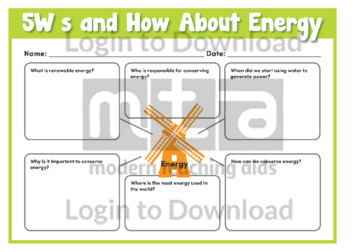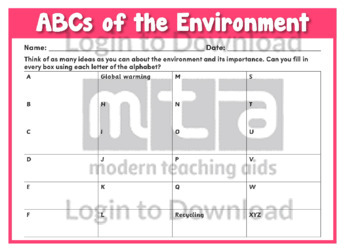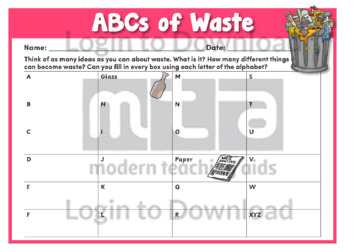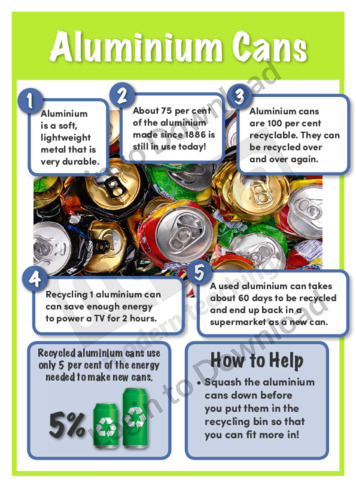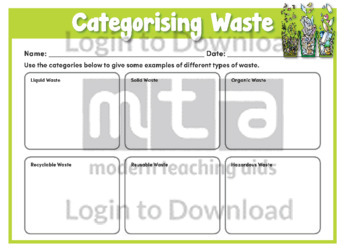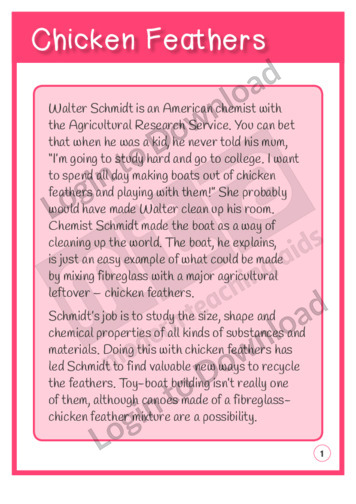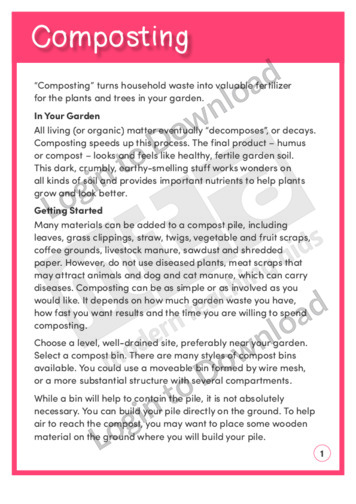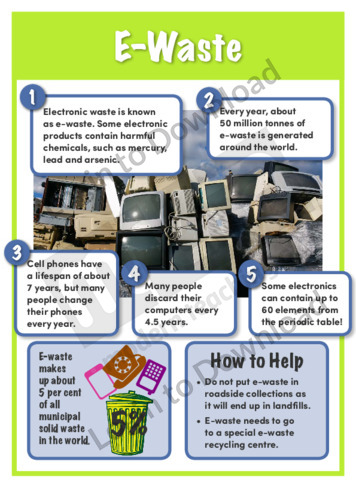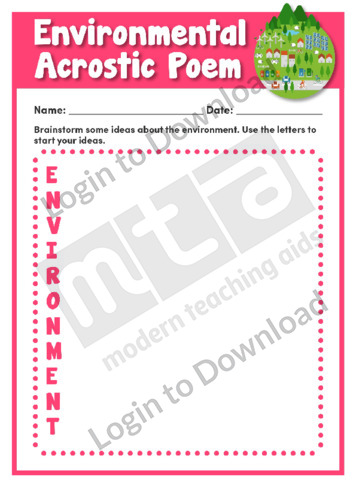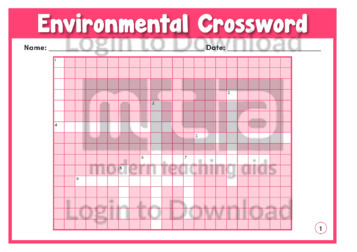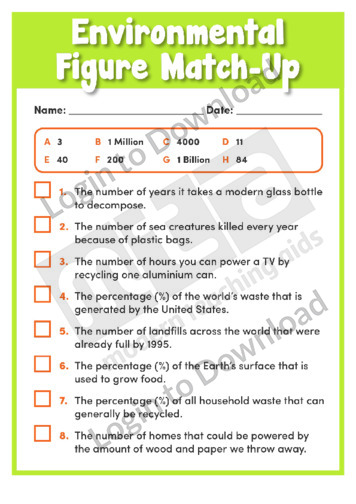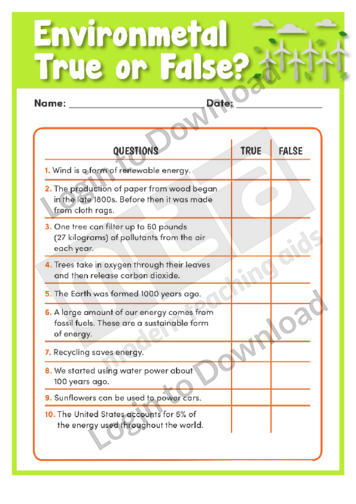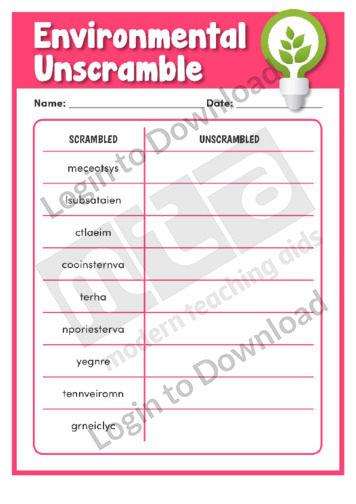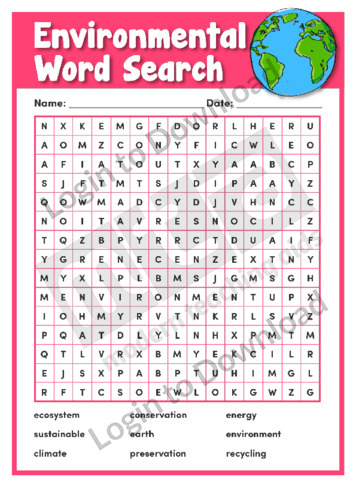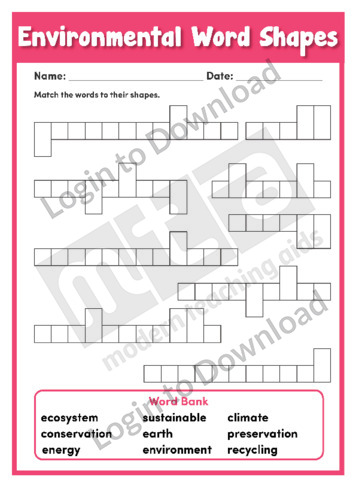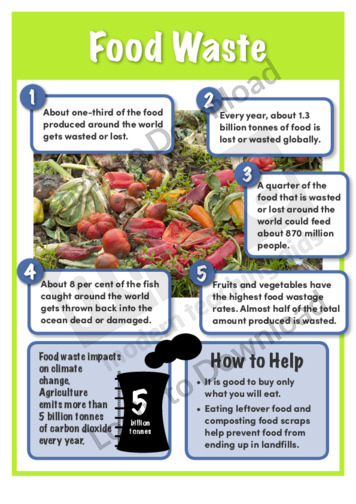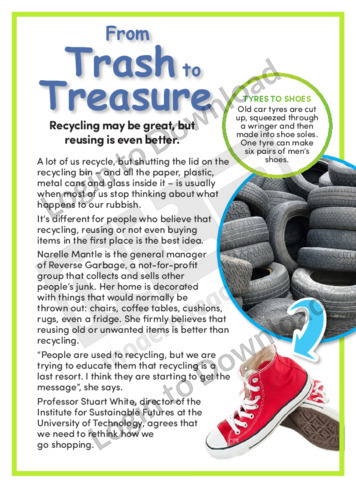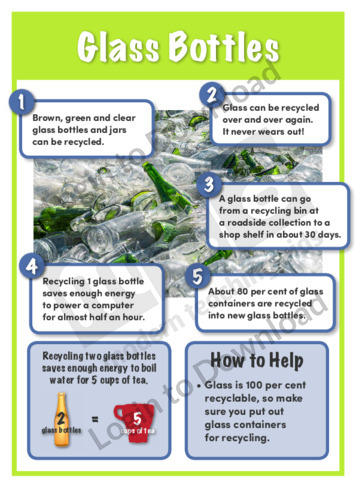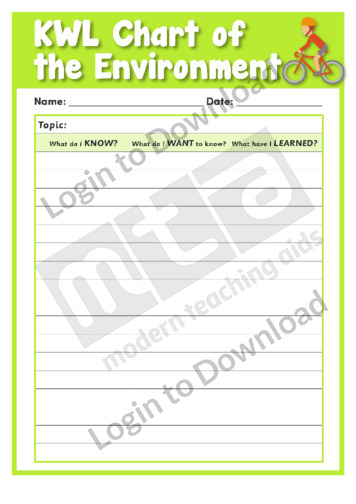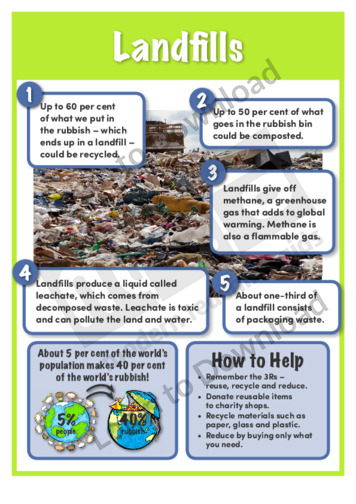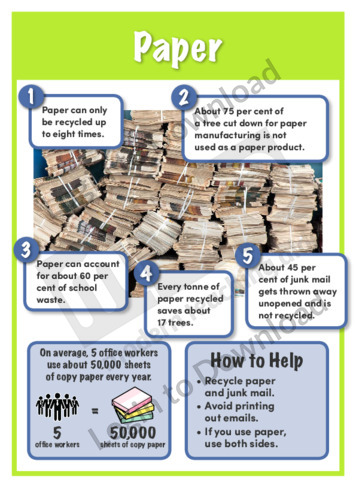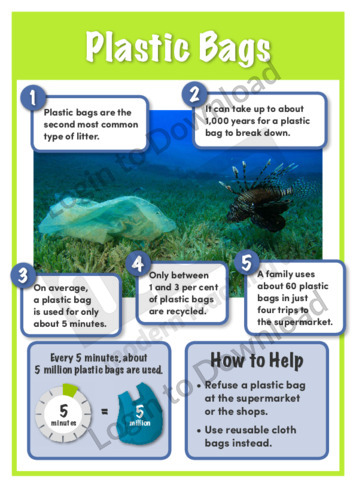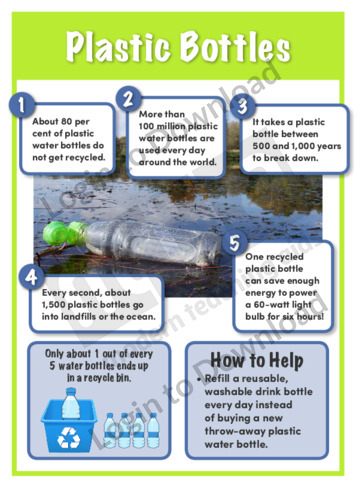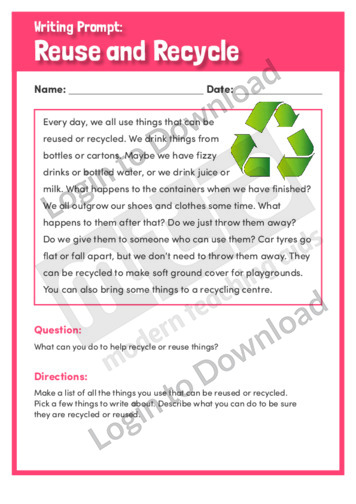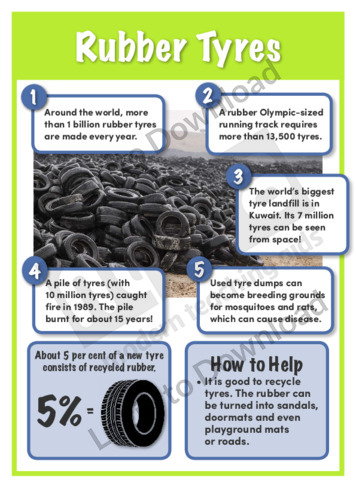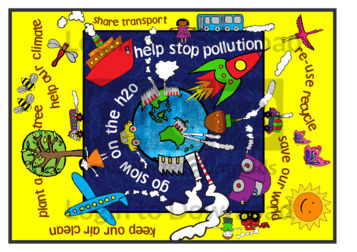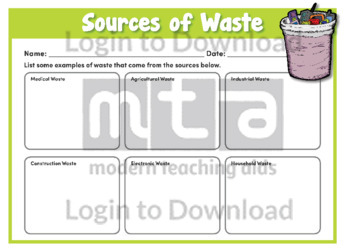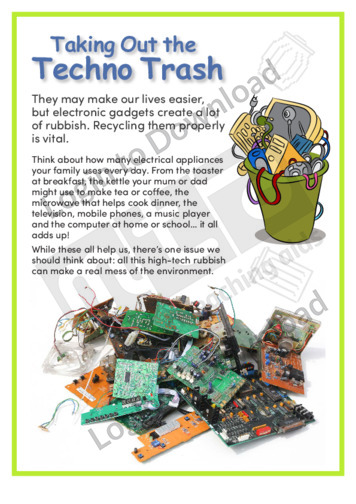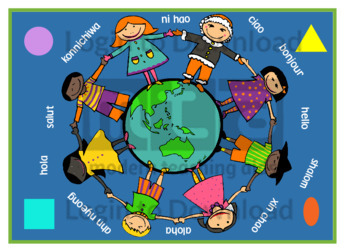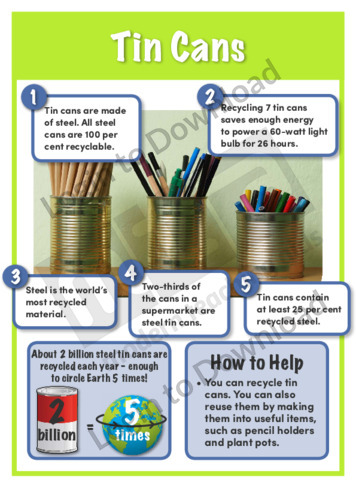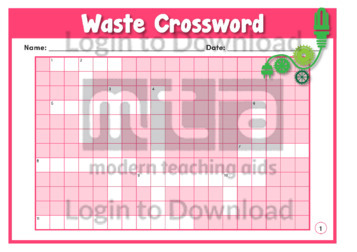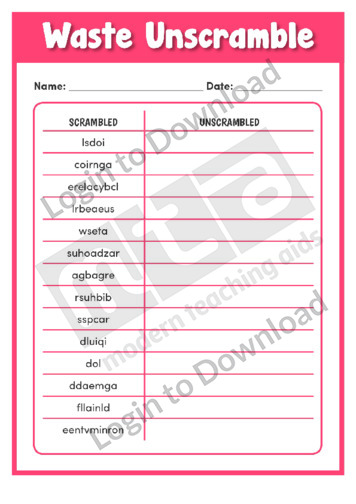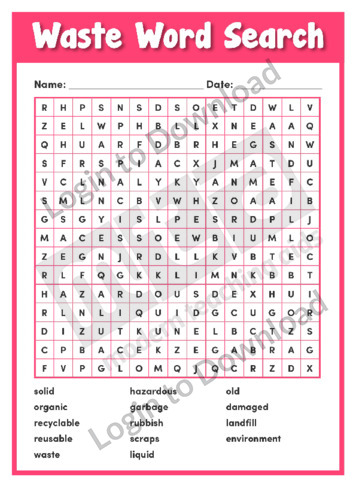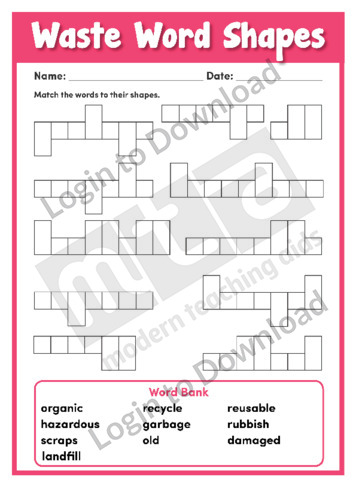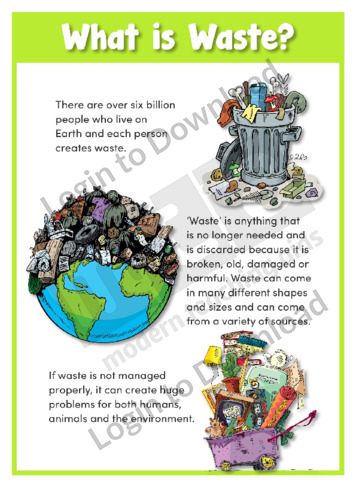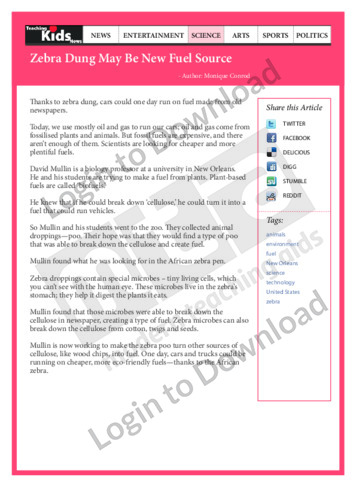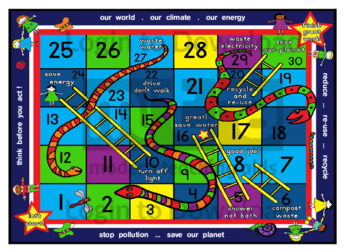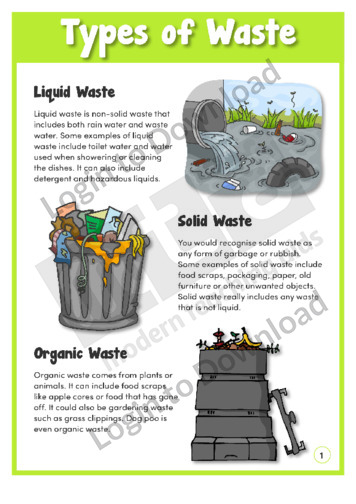This worksheet, ‘5Ws and How About Energy’ provides a structured diagram that helps students identify the who, what, when, where, why and how of energy. It is a great visual graphic that can be used as a comprehension activity and to generate meaningful class discussion.
This worksheet, ‘ABCs of the Environment’ provides an alphabet grid that students can use to develop their vocabulary and brainstorm different ideas about environmental concepts. This is a fun and simple resource that can be used effectively before, during or after an activity and across ability levels. It can also be utilised during individual, pair …More
This worksheet, ‘ABCs of Waste’ provides an alphabet grid that students can use to develop their vocabulary and brainstorm different ideas about the waste. This is a fun and simple resource that can be used effectively before, during or after an activity and across ability levels. It can also be utilised during individual, pair or …More
This science article, ‘Aluminium Cans’ features five facts about the environmental effects of aluminium cans on planet Earth. It provides factual information about aluminium cans, as well as ways to help lessen their impact on the environment. It is aimed at broadening students’ scientific and environmental awareness.
This worksheet, ‘Categorising Waste’ provides students with a clear and simple graphical organiser that instructs them to list examples of the different types of waste. It is a great comprehension task that can be coupled with the Lesson Zone, ‘Types of Waste’ worksheet, or can be used to begin discussions.
This reading comprehension activity, ‘Chicken Feathers’ asks students to answer questions about an American chemist, Walter Schmidt, who found ways to make leftover chicken feathers into products such as fibreglass canoes! It is aimed at increasing students’ awareness of semantics and encourages students to recall information.
This reading comprehension activity, ‘Composting’ asks students to answer questions about how to build a compost pile. It is aimed at increasing students’ awareness of semantics and encourages students to recall information, make predictions and form opinions.
This science article, ‘E-Waste’ features five facts about the environmental effects of e-waste on planet Earth. It provides factual information about e-waste, as well as ways to help lessen its impact on the environment. It is aimed at broadening students’ scientific and environmental awareness.
This worksheet, ‘Environmental Acrostic Poem’ is a fantastic quick activity to brainstorm facts and ideas about the environment. It is a fun resource that can be used without preparation across all age groups and abilities. Students are required to use the letters from the word ‘Environment’ to list facts or ideas that they already know …More
This worksheet, ‘Environmental Crossword’ provides students with the opportunity to use skills including vocabulary, reasoning and spelling to find the correct environmental words to complete the puzzle. It encourages students to identify and understand the terms being used and to build on their vocabulary of key words used when discussing environmental concepts. An answer sheet …More
This worksheet, ‘Environmental Figure Match-Up’ is a fun and engaging activity to explore interesting facts and figures about the environment. Students must match each fact to its corresponding figure by either cutting out or drawing links. This resource encourages students to think logically and analytically to ascertain the most likely answer. An answer sheet is …More
This worksheet, ‘Environmental True or False’ is a thought-provoking worksheet that requires students to asses the truth of facts about environmental concepts. Many students may presume the answers quickly only to realise their assumptions were not correct which can lead to interesting discussions and further research into environment related topics. An answer sheet is also …More
This worksheet, ‘Environmental Unscramble’ is a great activity that encourages students to study the sounds and spellings of words associated with the environment. Students will be challenged to unscramble letters to find common words used during this topic. An answer sheet is also provided.
This worksheet, ‘Environmental Word Search’ gives students the opportunity to learn new vocabulary and improve their spelling of words associated with the environment. Students must scrutinise the spelling of each word on their list, ensuring new vocabulary is committed to memory with the correct spelling.
This worksheet, ‘Environmental Word Shapes’ is a great resource that encourages students to examine the spelling and letter shapes of words associated with the environment. Students must use the word bank to match the letter shapes to the correct words.
This science article, ‘Food Waste’ features five facts about the environmental effects of food waste on planet Earth. It provides factual information about food waste, as well as ways to help lessen its impact on the environment. It is aimed at broadening students’ scientific and environmental awareness.
This article, ‘Reusing and Recycling: From Trash to Treasure’, provides information about reusing and recycling. It is aimed at broadening students’ environmental awareness and includes colourful and engaging photographs.
This science article, ‘Glass Bottles’ features five facts about the environmental effects of glass bottles on planet Earth. It provides factual information about glass bottles, as well as ways to help lessen their impact on the environment. It is aimed at broadening students’ scientific and environmental awareness.
This worksheet, ‘KWL Chart of the Environment’ prompts students to explore what they know about the environment, what they want to learn and what they have learnt following activities. This is a great, clearly formatted resource to encourage students to take responsibility for their own learning and to assist teachers in establishing their students’ prior …More
This science article, ‘Landfills’ features five facts about the effect of landfills on planet Earth. It provides factual information about rubbish and landfills, as well as ways to help lessen their impact on the environment. It is aimed at broadening students’ scientific and environmental awareness.
This science article, ‘Paper’ features five facts about paper waste on planet Earth. It provides factual information about paper, as well as ways to help lessen the impact of paper wastage on the environment. It is aimed at broadening students’ scientific and environmental awareness.
This science article, ‘Plastic Bags’ features five facts about the environmental effects of plastic bags on planet Earth. It provides factual information about plastic bags, as well as ways to help lessen their impact on the environment. It is aimed at broadening students’ scientific and environmental awareness.
This science article, ‘Plastic Bottles’ features five facts about the environmental effects of plastic bottles on planet Earth. It provides factual information about plastic bottles, as well as ways to help lessen their impact on the environment. It is aimed at broadening students’ scientific and environmental awareness.
This writing prompt, ‘Reuse and Recycle’ helps students to write about how they can help reuse and recycle things. It encourages students to think about caring for the environment and is aimed at broadening students’ writing and language skills.
This science article, ‘Rubber Tyres’ features five facts about the environmental effects of rubber tyres on planet Earth. It provides factual information about rubber tyres, as well as ways to help lessen their impact on the environment. It is aimed at broadening students’ scientific and environmental awareness.
This full colour ‘Save the World’ illustration can be reproduced for classroom use. It features pictures of some of the most common positive and negative environmental issues and messages and is a fun and educational addition to a classroom display encouraging students to be aware of their impact on the environment.
This worksheet, ‘Sources of Waste’ is a great resource that helps students research the different sources of waste. For some students waste may only be thought of as household rubbish. This graphical organiser helps to expand their thinking to recognise all sources of waste and prompt discussions into how much waste humans produce.
This article, ‘Taking Out the Techno Trash’, explains the proper ways to recycle electronics. It is aimed at broadening students’ environmental awareness and includes colourful and engaging images.
This full colour ‘The World’ illustration can be reproduced for classroom use. It depicts children from a variety of countries saying ‘Hello’ in their native languages and is a fun and educational addition to a classroom display to promote international cultural awareness.
This science article, ‘Tin Cans’ features five facts about the environmental effects of tin cans on planet Earth. It provides factual information about tin cans, as well as ways to help lessen their impact on the environment. It is aimed at broadening students’ scientific and environmental awareness.
This worksheet, ‘Waste Crossword’ provides students with the opportunity to use skills including vocabulary, reasoning and spelling to find the correct words associated with waste to complete the puzzle. It encourages students to identify and understand the terms being used and to build on their vocabulary of key words used when discussing this topic. An …More
This worksheet, ‘Waste Unscramble’ is a great activity that encourages students to study the sounds and spellings of words associated with waste. Students will be challenged to unscramble letters to find common words used during this topic. An answer sheet is also provided.
This worksheet, ‘Waste Word Search’ gives students the opportunity to learn new vocabulary and improve their spelling of words associated with waste. Students must scrutinise the spelling of each word on their list, ensuring new vocabulary is committed to memory with the correct spelling.
This worksheet, ‘Waste Word Shapes’ is a great resource that encourages students to examine the spelling and letter shapes of words associated with waste. Students must use the word bank to match the letter shapes to the correct words.
This worksheet, ‘What is Waste?’ is a fantastic resource that provides a interesting overview of the definition of waste. It includes colourful illustrations which can prompt class discussions and provides a platform to begin a new topic on recycling and waste around the world.
This kids news activity, ‘Zebra Dung May Be New Fuel Source’ is about research into alternative sources of eco-friendly bio-fuels.
This full colour ‘Snakes and Ladders’ board game printable can be reproduced for classroom use. This environment themed version of the classic board game is designed to encourage students to be aware of their impact on the environment.
This worksheet, ‘Types of Waste’ is a great resource that outlines the different types of waste including both liquid and solid. Beneath each subcategory there are examples of each type of waste including recyclable waste, reusable waste, hazardous waste and organic waste.
It�s that easy!

